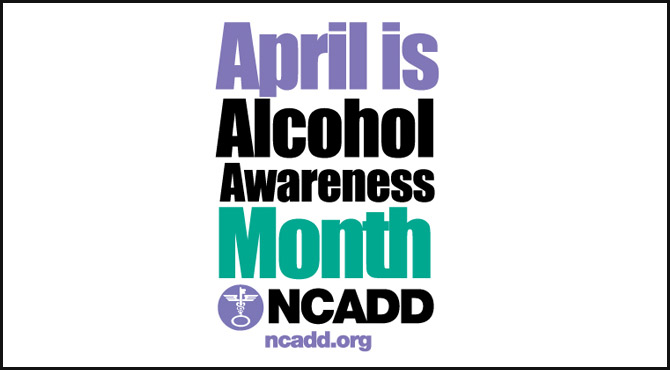Alcohol use disorder, also known as alcohol abuse or alcoholism, is generally defined by doctors as when a patient’s drinking causes distress or harm. April is Alcohol Awareness Month, and if you or a loved one is experiencing any of the problems listed below, you may have a drinking problem:
1. Feel guilty or ashamed about your drinking;
2. Lie to others or hide your drinking habits;
3. Have friends or family members who are worried about your drinking;
4. Need to drink in order to relax or feel better;
5. “Black out” or forget what you did while you were drinking;
6. Have given up other activities in order to make more time for drinking;
7. Have most of your planned social activities center around drinking;
8. Regularly drink more than you intended to.
If you have to drink a lot more than you used to in order to get a buzz or feel relaxed, you may be building up a tolerance, which is an early warning sign of alcoholism. Additionally, if you experience withdrawal symptoms such as shakiness, sweating, irritability, fatigue, headache, insomnia, headache, nausea, or loss of appetite, these are indicators you likely have a drinking problem.
It is undeniably more challenging to break a bad habit and form a new one than it was to develop the bad habit to begin with. The commitment to cut back on your drinking or stop drinking all together is up to you and can be done at any time; you don’t need to hit rock bottom first. Begin by making a list weighing the costs and benefits of drinking to the costs and benefits of quitting. Once you’ve made the decision to make a change, you should establish realistic drinking goals for yourself, get rid of temptations, such as alcohol bottles in your home or office, and announce your goals to friends and family so they can support you.
Once you’re made the commitment and put a plan to cut back or stop drinking into action, focus on getting sober safely and finding new meaning in your life by taking care of yourself. Taking care of yourself involves building your support network, developing new activities and interests, continuing treatment, and finding another outlet for your stress, whether that’s exercising, meditating, practicing breathing exercises or other relaxation techniques.
The path to change is a courageous and challenging one, and you don’t have to do it alone. Alcoholics Anonymous holds meetings every day of the week at all different hours throughout the world, where you can meet other individuals of all ages and races struggling to overcome their addiction, just like you. To find a meeting near you, visit http://www.aa.org.
DASHA® wellness & spa is a luxury lifestyle brand and New York City-based wellness center created to offer a truly holistic approach to wellness. To learn more, visit dashawellness.com.





